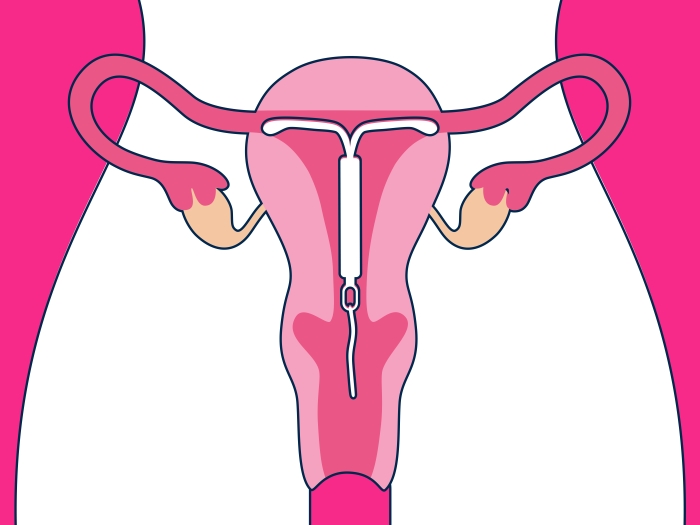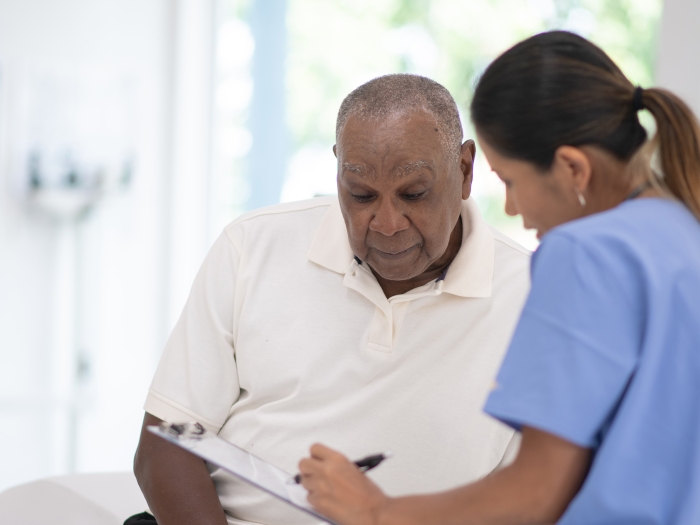A study explores how to better provide resources to sexual partners of those with STIs
5:00 AM
Author |

Research from experts at Michigan Medicine is highlighting the potential for additional at-home assistance for partners of those who are treated in the emergency department for a sexually transmitted infection.
Expedited partner therapy is one method of reducing STI re-infection. It’s a safe, effective, harm-reduction-focused practice of treating sex partner(s) of patients with STIs without a clinical exam of the partner(s).
This therapy can involve getting STI treatment prescriptions or medications (i.e., “take-home” expediated partner therapy) for the patient’s partner.
The take-home kits are the Center for Disease Control and Prevention’s preferred method so that the patient can deliver it directly to their partner, reducing steps in the partner’s treatment and thus stopping the spread of the infection.
Kits typically include patient information on STIs, STI treatment medications and instructions, and a list of low-no-cost local STI clinics for follow-up care.
However, despite this partner therapy’s ability to eliminate barriers to care, little has been studied on this method by emergency departments until now.
A novel idea
A pilot program that partnered with the Michigan Department of Health for expediated partner tharpy take-home kits found that emergency department distribution of the kits was feasible and acceptable.
In interviews with emergency room clinicians regarding the project, many favorably noted the public health benefit of it and the unique role the emergency department has in caring for underserved patients.
Reflecting the feasibility, whereas no partner therapy was used before the pilot, after the pilot implementation, 25% of emergency department patients that were potentially eligible were provided EPT.
“EPT is commonly used in other clinical settings but has been slow to be adopted by ED clinicians, despite rising ED visits for STIs.
“Our hope is that, by illuminating the barriers to EPT from the ED, we can help EDs across the country implement effective EPT programs to ultimately improve their community’s health,” said Emily Ager, M.D., M.P.H., emergency medicine resident at Michigan Medicine and an author of the research.
The pilot program found that emergency room physicians support expedited partner therapy, but many were unfamiliar with the prescribing process.
However, the pilot project has offered some solutions.
The research team developed an electronic health record order set and pop-up reminder that was significantly effective at increasing prescribing rates when the reminder was displayed.
The partner therapy was ordered 42% of the time when there was a reminder and only 8% when there was no reminder.
Importantly, this reminder was welcomed by many of the interviewed clinicians, who “appreciated it as a reminder.”
One previous barrier to offering take-home kits has been providing the medication pills since these medications are not billable to the patient. Partnering with a local health department to provide the medicines for the patient’s partner allows expansion of this vital treatment to higher-need populations.
“Prescription-based EPT is one step in the right direction of reducing access barriers but still runs into potential challenges of insurance and pharmacy-level awareness of EPT.
“Offering ED patients take-home EPT kits to give directly to their partner(s) holds further promise to improving sexual health equity for the most marginalized patients by removing the obstacle of filling the prescriptions,” said research author Rachel Solnick, M.D., MS.c., an assistant professor of emergency medicine at the Icahn School of Medicine at Mount Sinai in New York City.
Given the continued STI epidemic and associated health inequities, partnerships between emergency departmentsand local health departments provide essential innovations in healthcare delivery that could be a model for other hospitals nationwide.
Additional authors include Andrew A. Gutting, William Sturdavant, Fahmida Ahmed, Melissa DeJonckheere, Keith E. Kocher
Conflicts of Interest: By the WestJEM article submission agreement, all authors are required to disclose all affiliations, funding sources and financial or management relationships that could be perceived as potential sources of bias. No author has professional or financial relationships with any companies that are relevant to this study. Dr. Solnick was supported by the Institute for Healthcare Policy and Innovation at the University of Michigan National Clinician Scholars Program during a portion of this study. There are no conflicts of interest or sources of funding to declare.
Paper cited: “Mixed-methods Evaluation of an Expedited Partner Therapy Take-home Medication Program: Pilot Emergency Department Intervention to Improve Sexual Health Equity,” Western Journal of Emergency Medicine. DOI: 10.5811/westjem.59506

Explore a variety of health care news & stories by visiting the Health Lab home page for more articles.

Department of Communication at Michigan Medicine
Want top health & research news weekly? Sign up for Health Lab’s newsletters today!





